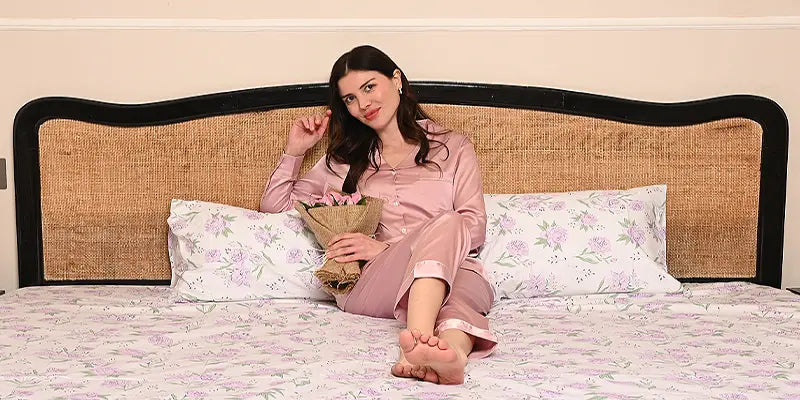
Sleep Disorder & Parkinson's Disease
If you're like most people, you probably take for granted the importance of sleep. After all, it's one of the essential components of a healthy day-to-day lifestyle. But what happens if you don't get enough sleep? In this blog post, we'll be discussing two conditions that can result from insufficient sleep: sleep disorders and Parkinson's disease. We'll explain what each condition is and how they can impact your health.
What are the Different Types of Sleep?

The different types of sleep can be broadly categorized into two groups: regular and non-regular.
Regular sleep is when people experience a pattern of falling asleep and waking up at the same time every day. Non-regular sleep is when people experience a range of sleeping habits, including frequently going to bed and waking up early, or sleeping in different parts of the day.
There are many benefits to having regular sleep. For example, regular sleep helps keep people healthy by promoting physical well being, cognitive function, and emotional stability. It also keeps people alert during the day and makes them more productive.
Sleep disorders are conditions that affect how an individual sleeps. They can cause serious problems such as diabetes, heart disease, high blood pressure, weight gain/loss, and depression. There are many different types of sleep disorders, but the most common ones include insomnia (difficulty falling asleep or staying asleep) and parasomnia (abnormal behaviors during sleep).
Why is Sleep Important?

There are many reasons why sleep is important. Sleep helps the body to heal and regenerate, it strengthens the immune system, and it regulates moods and emotions. It also helps to memorize and learn new information.
Sleep disorders can be very damaging to both individuals and societies. They can lead to problems with memory, concentration, decision-making, and motor skills. They can also increase the risk of developing Parkinson's Disease.
What are the Different Types of Sleep Disorders?
There are many different types of sleep disorders, each with its own set of symptoms. Some common sleep disorders include: narcolepsy, obstructive sleep apnea (OSA), restless leg syndrome (RLS), and insomnia. Each of these disorders can have a variety of effects on your health, including increased risk for heart disease, stroke, diabetes, and obesity.
Narcolepsy is a rare disorder that causes people to fall asleep suddenly and unpredictably. OSA is a condition in which people stop breathing repeatedly during sleep, leading to problems with energy levels and overall health. RLS is a disorder that makes it difficult for people to stay asleep or wake up easily in the morning. Insomnia is a problem falling asleep or staying asleep for an extended period of time.
What is Parkinson's disease?

There is growing evidence that Parkinson's disease (PD) and sleep disorders are linked. The connection between PD and sleep problems has been recognized for some time, but the cause of the link has remained largely unknown. However, new research suggests that a lack of sleep may be one factor contributing to the development of PD.
Studies have found that people with PD often experience difficulty sleeping. In fact, nearly half of all people with PD report difficulties sleeping at least some nights per week. Furthermore, people with PD often experience more daytime sleepiness than those without PD.
It is not clear why people with PD find it difficult to get enough sleep. However, experts believe that insufficient sleep may play a role in the development of PD by disrupting the body's natural healing process and causing stress levels to increase. This can lead to further damage to the brain and nervous system.
If you are experiencing difficulties sleeping, it is important to speak with your doctor about whether there is a link between your sleep disorder and PD. He or she may be able to recommend treatment options that will help you get more restful nights' sleep.
What Are the Signs and Symptoms of Sleep Disorders and Parkinson's Disease?
Sleep disorders are a common problem, and can lead to serious consequences. Sleep disorders can cause difficulty concentrating, making it difficult to do your job or schoolwork, and even causing accidents. They can also increase your risk of developing Parkinson's disease.
The most common sleep disorder is obstructive sleep apnea (OSA). OSA is when your breathing stops periodically during sleep, usually because you't bring your airway down all the way. This can lead to fatigue and problems with your memory and concentration.
Other sleep disorders include restless leg syndrome (RLS), which is a condition where you have trouble falling asleep or staying asleep, and narcolepsy, which is a condition where you fall asleep suddenly and often for no known reason.
If you're having trouble sleeping, there are some things you can do to improve your situation. You may need prescription medication to treat OSA or RLS. talk to your doctor about what other treatments might be available to you.
If you have Parkinson's disease, sleeping problems may be one of the first signs that something is wrong. Your symptoms may include muscle tremors, stiffness, slowed movements, and difficulty walking or moving around. If this is the case, make an appointment with your doctor as soon as possible so they can check for any sleep disorders that may be causing these problems.
How can sleep disorders and Parkinson's disease be treated?

There is no one-size-fits-all answer to treating sleep disorders and Parkinson's disease, as the two conditions can be treated differently. However, there are a few key strategies that can be used to help improve both conditions.
One key way to treat sleep disorders and Parkinson's disease together is to make sure that both individuals have a good night's sleep. This means getting enough quality sleep each night, which can be difficult for people with these conditions. Making lifestyle changes, such as avoiding caffeine and alcohol before bedtime, can also help improve sleep quality.
If an individual has symptoms of Parkinson's disease, including muscle stiffness and trouble walking, medications may be necessary to help improve their condition. These medications may include dopaminergic drugs or antiparkinsonian drugs. Some treatments for sleep disorders, such as cognitive-behavioral therapy or hypnotherapy, may also be effective in improving symptoms of Parkinson's disease.
How a Sleepsia Pillow Can Help You Avoid Sleep Disorder?
Most people sleep on their sides, which can cause neck and shoulder pain. A sleepsia pillow can help you to avoid sleep disorder. A pillow should be firm enough so that it supports your head and neck, but also soft enough to conform to your head and body. The right pillow can help you to sleep better by aligning your spine, reducing pressure on your nerves, and supporting your head and neck while you are sleeping.
How to Choose the Right Type of Pillow for You?
There are a lot of different types of pillows on the market, so it can be hard to figure out which one is right for you. Here are some tips on how to choose the right type of pillow for you:
- Consider your sleeping style. If you tend to toss and turn a lot, a memory foam pillow by Sleepsia may be a better option than a standard pillow. On the other hand, if you sleep soundly through the night, a standard pillow may be more suitable.
- Consider your neck size and shape. A standard pillow is usually designed to fit most people, but if you have a particularly large or small neck, you may need to go with a custom-made pillow.
- Think about your comfort level. If you're not used to sleeping on an angle, consider getting a pillow that's shaped like an L instead of an egg-shape or rectangle. Or if you're highly sensitive to pressure or heat, go for something softer like down or feathers instead of synthetic materials like memory foam or latex.
- Get help from friends and family members before making any purchase decisions. Everyone is different and will likely enjoy different types of sleep habits; it's important not to buy anything without trying it out first!
Tips for Sleeping Better on a Pillow

When it comes to sleep, everyone is different. Some people need a lot of noise and motion to fall asleep, while others can fall asleep with just one pillow. If you're struggling to get a good night's sleep, there are a few things you can do to improve your odds. Here are five tips for sleeping better on a pillow:
Choose the Right Type of Pillow
Pillows come in many shapes and sizes, so it's important to find the right one for your needs. If you need more support than a standard pillow offers, go for a bolster pillow or cervical pillow. If you have neck pain or trouble transitioning from an upright position to bed, consider buying a contour pillow or memory foam pillow.
Experiment With Different Positions
There's no one right way to sleep; experiment with different positions to find the ones that work best for you. You might be able to get comfortable in any number of positions, as long as they don't put too much pressure on your neck or back. Don't be afraid to move around throughout the night if you find that one position isn't working out as planned.
Use a White Noise Machine
White noise machines help mask ambient sounds and can help induce sleepiness in people who struggle to fall asleep without assistance. To use a white noise machine effectively, make sure the machine is placed near your bed so that it covers all frequencies evenly. Consider using headphones
The effectiveness of sleep medications
According to the Mayo Clinic, sleep disorders can have a significant impact on people with Parkinson's disease. Sleep disorders can cause problems with daytime function and work performance, mood, energy levels, and cognitive function. Fortunately, there are many different types of sleep medications available that can help improve the quality of sleep for people with Parkinson's disease.
One of the most common sleep disorders is sleep apnea. This disorder occurs when someone stops breathing during their sleep and causes them to wake up frequently during the night. Apnea can lead to reduced oxygen levels in the blood and increased risk of heart disease, stroke, and death.
Sleep apnea is often treated with a device called an apnea monitor. The monitor records how often the person falls asleep and wakes up during the night. The person then uses this information to develop a treatment plan that helps them stay asleep longer.
There are also treatments for insomnia that don't require medication. These include bed-time rituals such as reading or listening to calming music before bed; avoiding caffeine and alcohol close to bedtime; establishing a regular bedtime schedule; maintaining a cool environment near the bed; reducing noise in the home; using blackout curtains or earplugs if necessary; practicing relaxation techniques before bed; and consulting with asleep specialist if needed.








